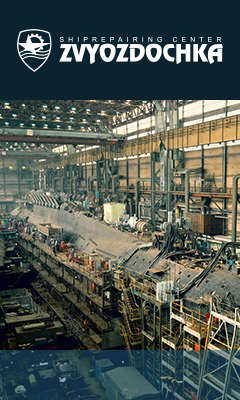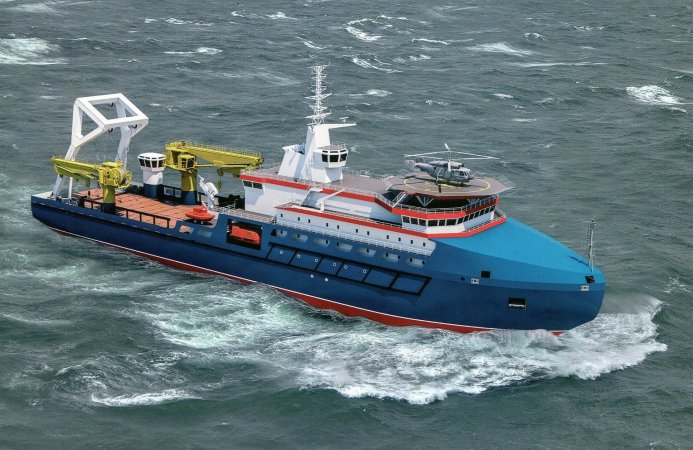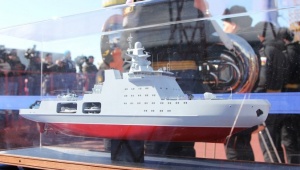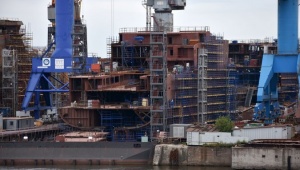According to the Kommersant newspaper, Yantar was supposed to win the contract for construction of the Project 23120M auxiliary ship in the first quarter 2017. The newsmakers say the Russian Navy’s command made such decision late in the last year.
Representatives of Yantar shipyard (member of USC) told Mil.Today that the company still expected signing of the contract, however, the timelines are unknown. Information on the ship’s designers might be found at the defense ministry or USC, added the shipbuilders.Press-service of the United Shipbuilding Corporation (USC) did not provide timely comments on the issue. In May 22-23, Mil.Today failed to get Vladimir Tryapichnikov, director of the Russian Navy’s shipbuilding department, on the phone.
According to an insider, the ship’s cost estimated by Yantar shipyard is 12 billion rubles. The company is capable to build this kind of a ship within three years. However, the Navy is not satisfied with such price and wants to cut it down to eight billions.
Holder of original documentation for the basic project 23120 is its designer, CJSC Spetssudoproject, the design bureau’s director Anton Sobolevsky told Mil.Today. As for him, creation of the technical and detailed projects of the retrofitted mooring hulk may take 0.5-1 year.
The Leningrad Shipyard Pella proposes own version of the Arctic-based mooring ship as well. The question is the Project 23120M developed by Pella’s affiliate, Pella Zitas based in Hamburg with active participation of Baltsudoproject. According to the shipyard’s deputy director, Ilya Vaisman, development of technical and detailed project will take at least six months. By the way, the Pella’s project is intended not only for the Navy but also for Arctic explorations and industrial use. Pella shipyard is about to build mooring hulks at its Hamburg branch, Vaisman added.
Head of designing sector at the Krylov Scientific Center Aleksey Litsis told Mil.Today that competition in the ship-designing industry had been heavily aggravated in recent times. It is connected with funding cutoffs in the Navy. "Technical specifications for the base ship Elbrus were developed by naval experts", he said. "There are some certain institutes that develop concepts, ask them for details", Litsis said.He added that designing of such kind of a vessel is a complex process; design bureaus strictly follow customer’s instructions. "They are like craftsmen doing a particular job, in this case, creation of technical project and development of detailed docs. Step right or step left – you’re shot!"
Lead logistics support ship of Project 23120, Elbrus, was laid down at Severnaya Verf shipyard on November 14, 2012. According to the contract, the ship was supposed to be commissioned after two years. The shipyard delayed construction due to the project amendment. As for Dmitry Bulgakov, deputy defense minister, the lead Elbrus will join the Russian Navy in 2017, and the first serial ship, Vsevolod Bobrov, in 2018. Construction of the second serial vessel, Kapitan Shevchenko, was frozen.


























